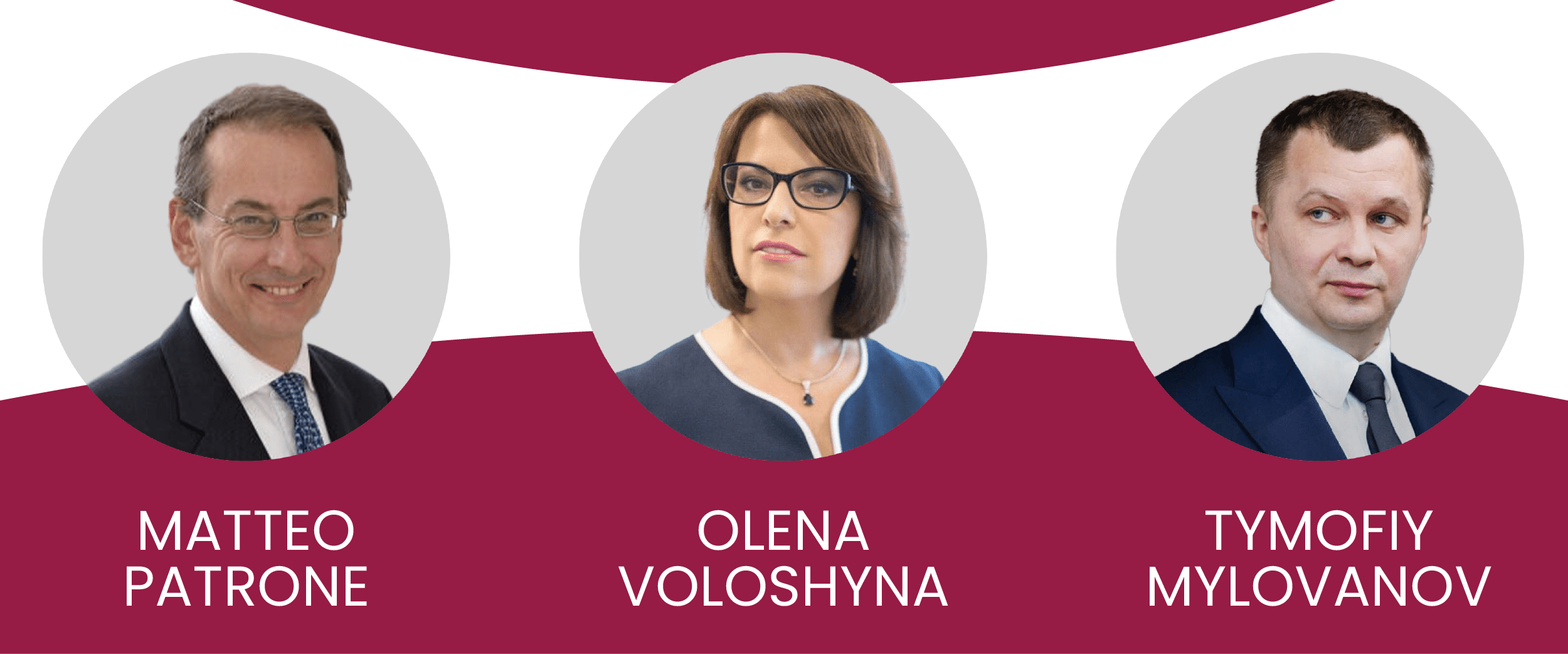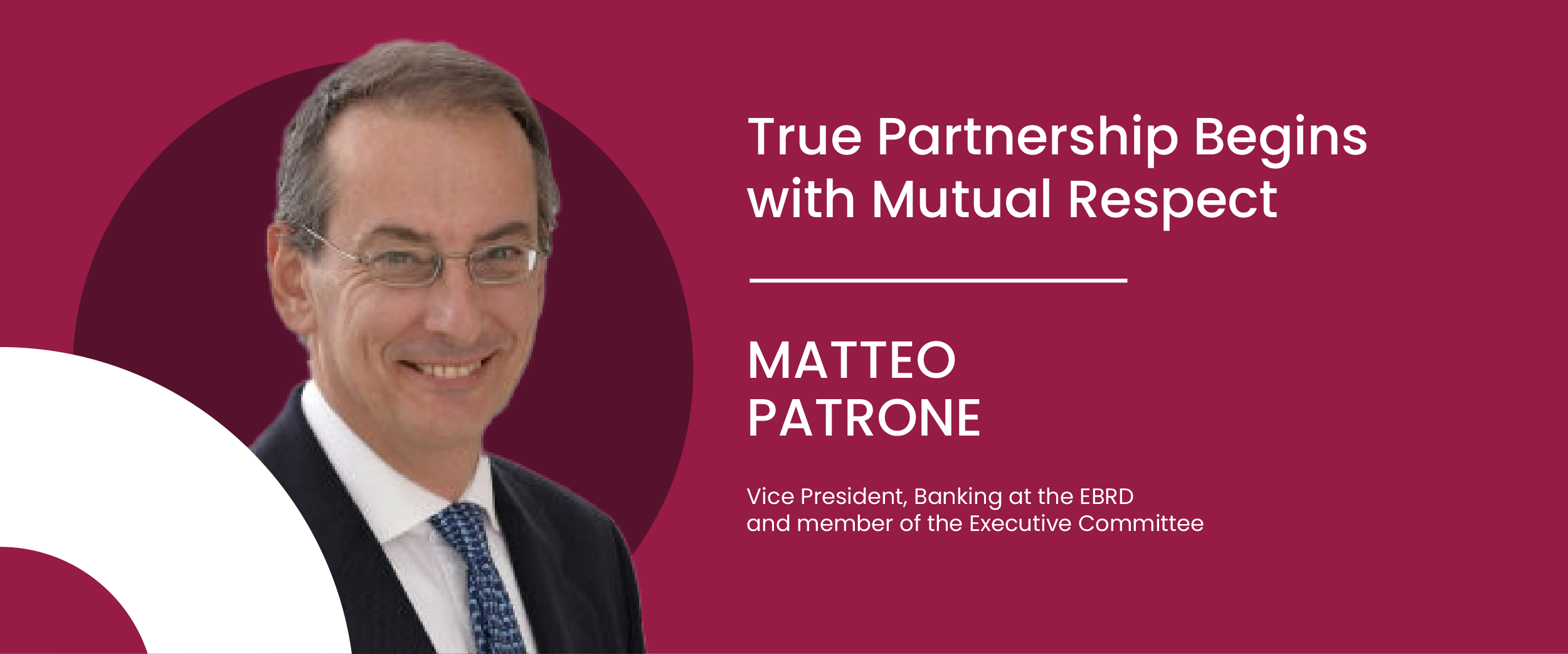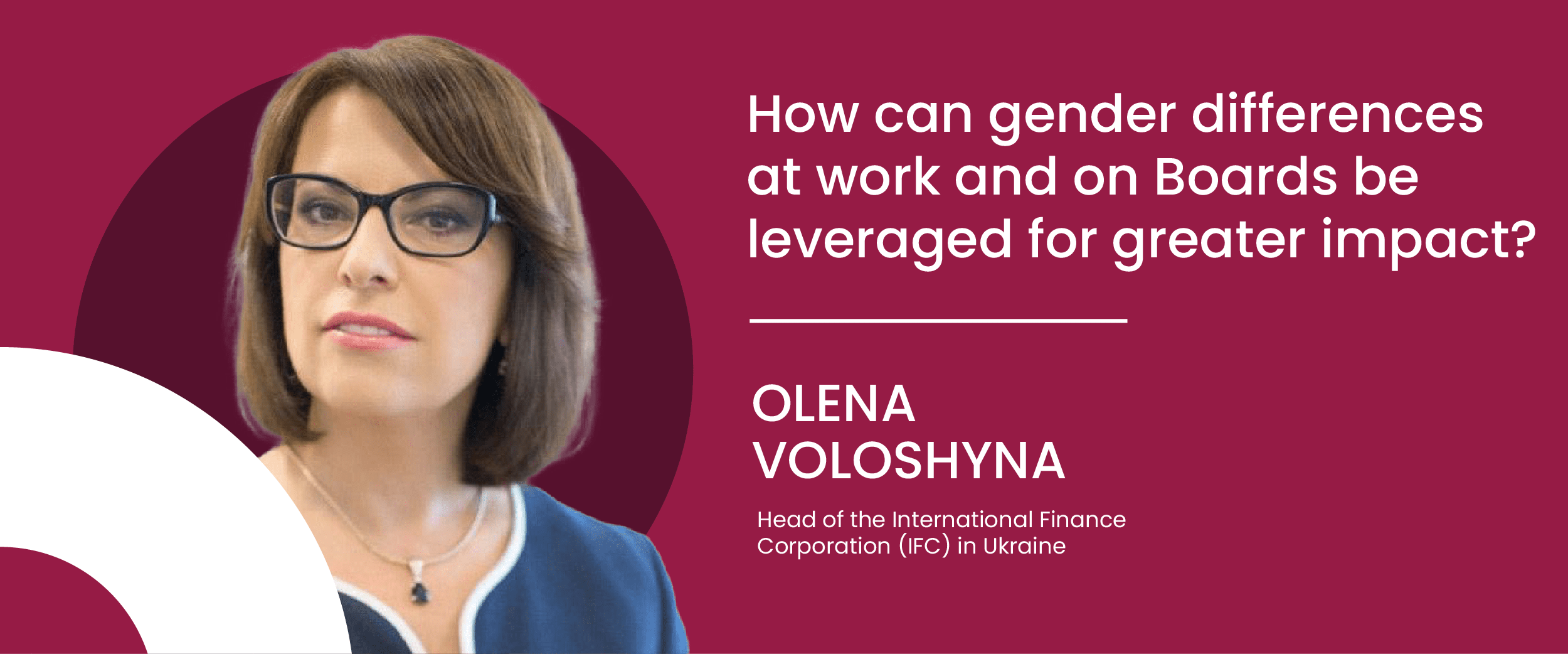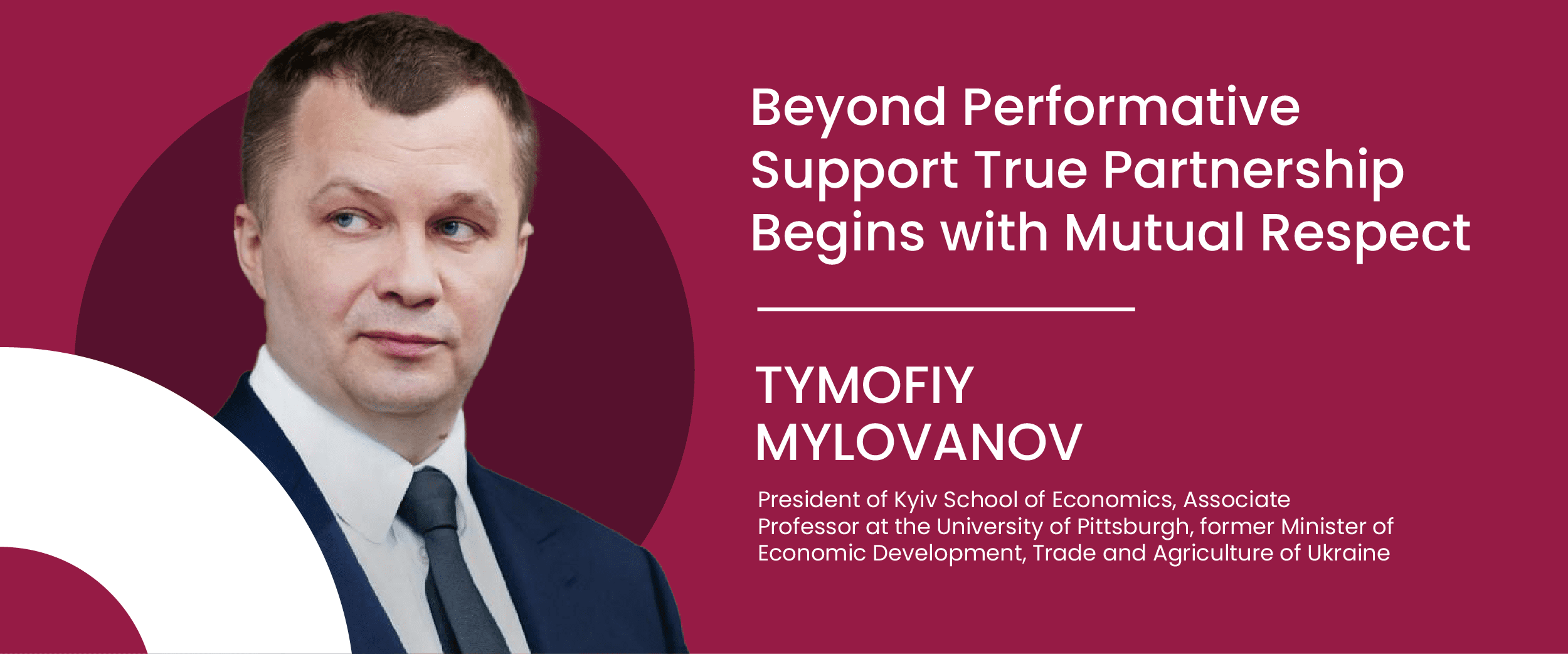
The Power of Partnership: Embracing Gender Collaboration for Stronger Leadership in Ukraine
2025-07-08
Three prominent voices offer insightful reflections on how men and women can coexist in a professional domain, leverage their unique strengths, and foster authentic partnerships.
The Power of Partnership: Embracing Gender Collaboration for Stronger Leadership in Ukraine
In Ukraine’s evolving professional and leadership arenas, the conversation around gender equality is not just about representation but about meaningful collaboration, mutual respect, and shared leadership. Three prominent voices — Olena Voloshyna, Tymofiy Mylovanov, and Matteo Patrone — offer insightful reflections on how men and women can coexist, leverage their unique strengths, and foster authentic partnerships to drive progress in boards, organizations, and society at large.

Their experiences reveal that empowering women is not about changing them to fit male norms but about men stepping up to be genuine allies and partners in leadership.
True Partnership Begins with Mutual Respect
Matteo Patrone, Vice President, Banking at the EBRD and member of the Executive Committee

Partnership is a two-way street. Both partners need to embrace a relationship that focuses on the strengths that both bring to the table, being cognisant and honest about the respective weaknesses and needs. Throughout my professional and personal life, I have embraced this approach—perhaps influenced by my lifetime partner, a successful marketing professional.
With all my colleagues, male or female, I tried to focus on the diverse set of skills we would put together to achieve our common objectives. The fact that I had some amazing female bosses (and an amazing partner at home) also helped get away with the patronising attitude that sometimes still permeates the debate about gender equality.
Ukraine, in this sense, is not different from other countries — if not for the fact that the extremely difficult conditions the country finds itself in have accelerated some processes.
I have met some of the most inspirational female leaders in Kyiv, Lviv and all around the country (and abroad). In my opinion true collaboration means first and foremost an open mind and mutual respect. But also believing in yourself, because that is immediately reflected in the relationship with your interlocutor. Lowering barriers from both sides, a healthy and honest competition, pushing each other whilst also lending each other a hand when needed, are all part of this. Ultimately it is about working together for a greater good. The senseless, inhuman and unjustified aggression has imposed on the Ukrainian people an unprecedented sense of urgency and has sharpened minds and mental processes, including when it comes to progress in gender equality. This is one of the many reasons why I am so optimistic about the future of Ukraine, even in the most dire circumstances.
How can gender differences at work and on Boards be leveraged for greater impact?
Olena Voloshyna, Head of the International Finance Corporation (IFC) in Ukraine

The last thing I want to do in this article is tell men what they need to do. It often causes a counterreaction — even if they read it, which I strongly doubt.
Instead, let’s reflect on what we, as women, can do better to win male allies and partners. Let’s remember our own early steps and how we handled those situations.
When I was offered my first managerial position on an IFC project, I was scared and hesitant. The person who convinced me to take the leap was my husband. “Go for it, girl — you’ll manage,” he said. That was exactly what I needed to hear from someone I respected — my male partner. In the early ’90s, not many Ukrainian men were as supportive.
Then came the challenge of finding my place in the American, male-dominated donor world. I was the only Ukrainian managing a USAID-funded project, while also navigating a male-dominated Ukrainian government and leading a team of experienced male lawyers and economists — many of whom knew more than I did in certain areas.
I had to go through a series of personal transformations and develop the soft skills that leadership demands. I evolved from a shy, quiet (never speak unless asked) girl to someone who can be assertive when I know my ground, yet also willing to step back and let others with more expertise take the lead.
Listening became one of the most powerful skills I developed. People appreciate being heard — but men especially expect that from women. Learning to avoid conflict and seek compromise became another strength — something often more natural for women. While men may lean toward competition, women often lean toward consensus.
And let’s not underestimate the power of humor. A sense of humor is probably the number one secret weapon. Men enjoy the company of a witty woman — and humor has helped me in countless professional situations.
Now, back to leadership and women on boards. Yes, women remain underrepresented globally —and in Ukraine. Deloitte’s 2025 Ukraine snapshot shows women hold barely a quarter of board seats. IFC’s own playbook encourages embedding gender targets into loan covenants. There are growing discussions about quotas.
Personally, I believe quotas can help—but they can also risk undermining merit and becoming symbolic or artificial. Quotas may open doors, but it’s up to us, women, to prove that we bring value, competence, and perspective equal to, if not beyond, our male colleagues.
And we do.
We must focus on diligence, preparedness, discipline, attention to detail, risk governance, stakeholder engagement, and sustainability.
And finally, a message to fellow female leaders:
Let’s not try to copy men or become more competitive. Let’s lean into our strengths: collaboration, partnership, professionalism, knowledge, and results. And yes — let’s never forget our ultimate superpower: a good sense of humor!
Beyond Performative Support
Tymofiy Mylovanov, President of Kyiv School of Economics, Associate Professor at the University of Pittsburgh, former Minister of Economic Development, Trade and Agriculture of Ukraine

In Ukraine’s male-dominated systems, I don’t believe in performative support — and unfortunately, there’s a lot of it. I believe in shared risk. That means not just “helping women,” but putting them in charge. Real charge. Not second-guessing them, not backseat-driving.
It means giving women budgets, or the ability to raise their own. Giving them real authority and ownership over meaningful outcomes. Not placing them on diversity panels, committees, or working groups, but involving them in crisis teams, where decisions are made fast and their word is final. In strategy units with delegated, independent mandates. In the last round of negotiations, not just the warm-up acts.
That’s what I do — at KSE, in reform work, and during the war. And I do it publicly. I place people in the spotlight. I help build the infrastructure that allows them to be visible, lead, connect, and demonstrate authority.
When someone in a high-level position wants to meet with me before speaking to a woman leader, my response is simple: "Why don’t you talk to her directly? I’ll just pass along your message, and she’ll be the one deciding anyway."
If something fails, we fail together. That’s my responsibility too. If it works, I don’t claim the victory — she’s the leader, with no asterisk.
Competence isn’t about noise or status. It’s about holding complexity under pressure and thinking at a systems level. That’s the kind of leadership I support and promote.
I want to grow people with purpose, talent, and ambition — who know how to collaborate, who stay calm under stress, and who deliver.
In Ukraine, power doesn’t run on titles. It runs on trust. It’s about who gets the call when it matters, after the formal meeting ends and things go off script.
That’s why I don’t just mentor. I open doors, connect women directly to donors, allies, and decision-makers, and then I step away.
A specific example: At the beginning of the war, I connected the leadership of KSE to the government, donors, ministers, and high-net-worth individuals. After that, I didn’t attend a single meeting where they were present.
Another: A woman leader I support goes to a meeting with the President. I don’t go, even though I haven’t seen him in a while and I formally supervise her projects. She leads. I trust her. That’s enough.
I also hold male leaders accountable.
- Show me who you’ve lifted to your level.
- Show me who you backed when the stakes were high.
- Or were you trying to stay in the spotlight?
Leadership isn’t about control. It’s about recognizing pain, fatigue, and guilt— and making space for other forms of strength.
Collaboration, emotional resilience, and care aren’t soft skills — especially not in wartime.
After a night of bombings, no one can perform if they lack emotional resilience. No one can lead if they can’t lift others.
The path forward for Ukraine demands more than rhetoric about gender equality — it requires transforming mindsets, institutions, and leadership culture. The power of partnership between men and women is not just a matter of fairness; it is a strategic imperative that will determine the country’s capacity to overcome crises and build sustainable progress. As these leaders show us, true collaboration thrives on shared authority, trust, and the courage to uplift each other’s strengths. The future of Ukrainian leadership depends on embracing this partnership fully — not as an ideal, but as a necessity. It is a call to all of us: to listen, to act, and to lead differently, so Ukraine can emerge stronger, together.
